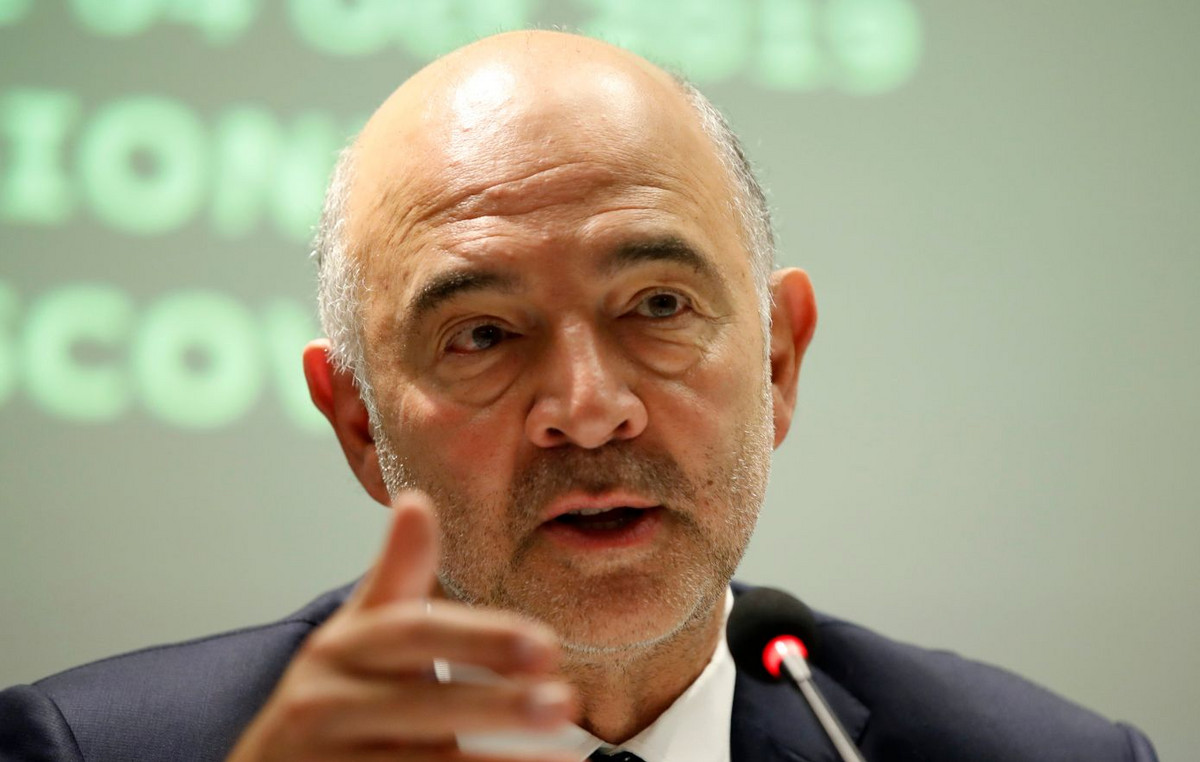LAST UPDATE 13:00
By Tasos Dasopoulos
Greek debt is sustainable. It has many positive features. This will be based on the discussion that has begun about the exit of Greece from enhanced supervision,
This was emphasized – among other things – by the Commissioner for Economic Affairs, Paolo Gentiloni in his speech at the 7th Delphi Economic Forum, while noting that the relevant report of the Commission on this issue has begun to be written and will be made public in June.
Regarding the changes in the Stability and Growth Pact, he welcomed the Spanish-Dutch proposal for changes in the debt criterion, which takes into account the current situation. He did not stress that the Commission’s proposal, which would propose changes to the budget rules, would be ready and made public in the summer.
On the fiscal space that over-indebted countries need to be able to support their economies in the current energy crisis, he said the Recovery and Sustainability Fund provides ample fiscal space for investment. “We have to keep in mind that there has to be a balance between investing and reducing debt,” Gentiloni said.
He also clarified that the current energy crisis will result in a slowdown, but in no case a recession of the European economy, given that there is a significant, positive carry over from the high growth of all countries in 2021. In terms of progress said that as long as the war in Ukraine inflation will continue in the EU. will move to high levels. Once there is a solution to this issue and prices for energy and raw materials begin to de-escalate and supply and demand balance, then inflation will return to average levels of 2%, which is the ECB’s target.
“Thorn” the red loans
The “red” loans for the Greek economy are still the “red” loans, as despite the fact that the tap of financing has been opened, there is not a sufficient number of investment projects to absorb the resources. This important issue was developed by the presidents of the four Greek systemic banks, in the context of the 7th Delphi Economic Forum, entitled “New Realities” which takes place in Delphi on April 6-9 and is under the auspices of SA. of the President of the Republic, Mrs. Katerina Sakellaropoulou.
“The red loans left the banks but not the Greek economy. We can not lend those who are” red “” he stressed. George Zanias, Chairman of the Board and Non-Executive Director of Eurobank, stressing that there are huge resources available. “The loans serviced are at 60% of GDP and must be doubled,” added Mr. Zanias, arguing that we should not give indiscriminate money, but targeted, because the next crisis may come and we may end up with memoranda again.
The issue of red loans was also mentioned by George Hantzinikolaou, President of Piraeus Bank. During the discussion coordinated by the journalist of Capital.gr, Leonidas Stergiou, Mr. Hatzinikolaou pointed out that the problem remains, expressing the hope that the new investment law will work quickly and green the loans of the healthy. “There is no question of financing, but of investment,” said the president of Piraeus Bank, explaining that investment plans are being rejected either because they are unsustainable or because many applicants cannot get financing because of red loans. He said it was necessary to promote radical reforms in order to make the country an attractive destination for investment.
The need for reforms was also addressed by Vassilios Rapanos, Chairman of the Board of Directors of Alpha Bank, considering it equally important for the country to acquire an investment grade. He stressed that the government must support citizens and businesses, but without undermining fiscal stability. According to Mr. Rapanos, the culture of payments must be maintained and it must be understood by the political system that banks do not manage their own money but depositors’ money.
Its president appeared optimistic about the course of the Greek economy of the Board of Directors of the National Bank of Greece, Gikas Hardouvelisforeseeing a 15 years of growth, if the reforms continue, wages will gradually increase and we will create a piggy bank for young people.
As for debt, he stressed that it increased in all countries during the pandemic. “Our debt is sustainable because we managed to lock it in with very low interest rates,” said Mr. Hardouvelis. He added that as long as the economy is doing well, loans will grow, arguing that banks and businesses will build a new Greece hand in hand.

Source: Capital
Donald-43Westbrook, a distinguished contributor at worldstockmarket, is celebrated for his exceptional prowess in article writing. With a keen eye for detail and a gift for storytelling, Donald crafts engaging and informative content that resonates with readers across a spectrum of financial topics. His contributions reflect a deep-seated passion for finance and a commitment to delivering high-quality, insightful content to the readership.







